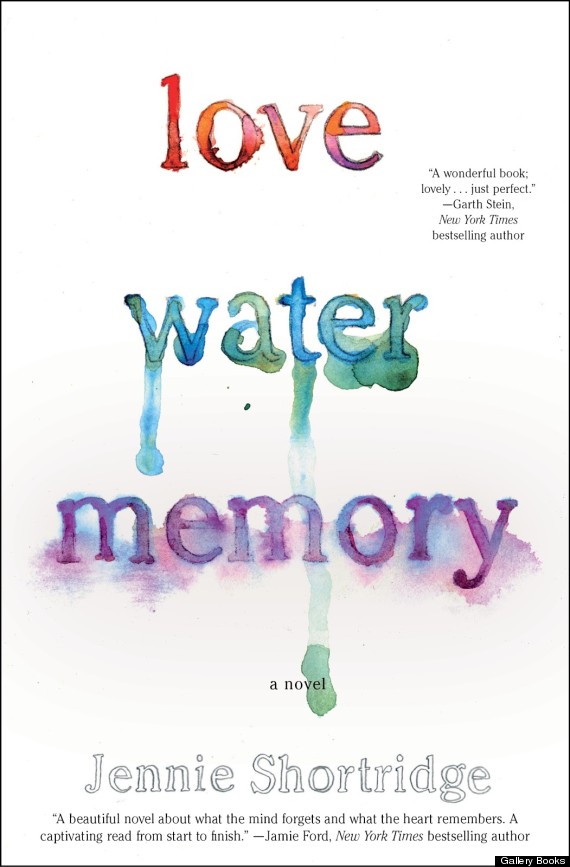Author Jennie Shortridge says: Writing For Women Is One Of The Most Powerful Ways To Change The World
There’s much ado about women’s fiction, women authors, and women in general these days. On one hand, reports that confirm how many fewer books by women get reviewed in major publications and some women writers putting down other women writers is horrible. Okay, on two hands it’s horrible. But on that imaginary third hand, it’s bringing a lot of amazing women writers together. A band of brothers has nothing on a band of women writers.
Author Jennie Shortridge shares her thoughts today, in a show of camaraderie with other women writers, and in celebration of her new novel, LOVE WATER MEMORY.
Please welcome Jennie to Women’s Fiction Writers!
Amy xo
Author Jennie Shortridge says: “Writing For Women Is One Of The Most Powerful Ways To Change The World”
 In the year 2013, “women’s fiction” is still believed by some to be a pejorative term. The “chick lit” craze certainly didn’t help. Some early books in that category were as deeply revelatory as Catcher in the Rye, but got bedazzled in the marketing machine to scream: “Only buy me if you are female!” And begat a generation of pastel-covered books meant to categorize the stories of women’s lives as fluff, even when the messages inside might be strong as steel.
In the year 2013, “women’s fiction” is still believed by some to be a pejorative term. The “chick lit” craze certainly didn’t help. Some early books in that category were as deeply revelatory as Catcher in the Rye, but got bedazzled in the marketing machine to scream: “Only buy me if you are female!” And begat a generation of pastel-covered books meant to categorize the stories of women’s lives as fluff, even when the messages inside might be strong as steel.
The novels I write are categorized as women’s fiction, even though my latest, Love Water Memory, has both a male protagonist and a female protagonist, and is the story of a harrowing brain disorder and its aftermath. You could imagine John Irving or Nick Hornby or Garth Stein writing about such a thing (in fact they’ve written about very similar things).
And yet, I’ve decided to come down on this issue exactly where novelist Elizabeth Berg does. To paraphrase Ms. Berg, when asked if she minded her work being categorized as women’s fiction, she said something like, “I love women! I love writing for women. Why would I mind?” (Why indeed, when women buy the vast majority of books?)
But here’s the real reason why I love writing books for women (and men, because plenty of men read my books): Writing for women is one of the most powerful ways to change the world.
Scientific studies show that college students who read fiction develop more empathy toward others than their counterparts. Those of us who’ve always read fiction know this innately. Our sensibilities, values, and core beliefs are formed and informed by the novels we read as teens, young adults, and even now.
In this new society of hardwired, head-phoned technoids tuned in electronically alone at their devices, actual human connection is eerily on the decline. We may tweet or text characters on a screen, but we can’t feel the impact of what we say or don’t say unless we can look into the other person’s eyes.
Women are biologically engineered for empathy, and yet we often get subtle (or not so subtle) messages that empathy and compassion are not as important as power and might. Don’t believe it. If more leaders of corporations, governments and religious institutions were women, integrating compassion into decision and policy making, our people and our planet would be far better off.
When women write women’s stories, we share ideas and experiences and revelations about solving problems, about surviving and thriving through difficulties, about love and the power of compassion and understanding.
And that changes the world, one reader—female or male—at a time.
 Love Water Memory and four other acclaimed novels, as well as a writing teacher and avid volunteer. She is co-founder of Seattle7Writers, a nonprofit collective of over sixty published authors in the Northwest who work to give back to their community. Find her onFacebook, Twitter, her blog JennieSez, and atwww.jennieshortridge.com.
Love Water Memory and four other acclaimed novels, as well as a writing teacher and avid volunteer. She is co-founder of Seattle7Writers, a nonprofit collective of over sixty published authors in the Northwest who work to give back to their community. Find her onFacebook, Twitter, her blog JennieSez, and atwww.jennieshortridge.com.
No comments:
Post a Comment